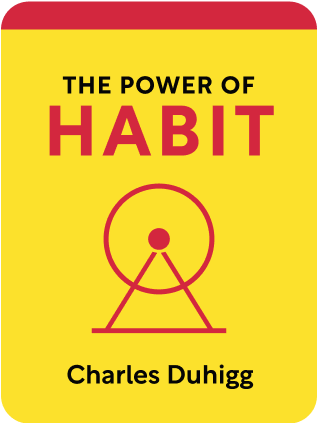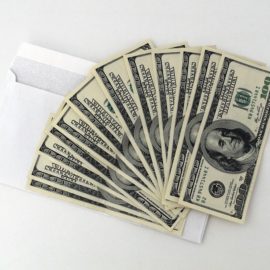

This article is an excerpt from the Shortform book guide to "The Power of Habit" by Charles Duhigg. Shortform has the world's best summaries and analyses of books you should be reading.
Like this article? Sign up for a free trial here .
Are you looking for The Power of Habit quotes? Can these quotes inspire you to change your habits?
These The Power of Habit quotes explain major parts of the book, like how we form habits and how to overcome them using willpower. When you set out to change your habits, you’ll need to stay motivated and follow the steps.
Keep reading for some of the most motivational The Power of Habit quotes.
The Power of Habit Quotes
These The Power of Habit quotes can help you learn about concepts in the book, and inspire you to start changing your habits.
“Change might not be fast and it isn’t always easy. But with time and effort, almost any habit can be reshaped.”
You think you’re making decisions all day, but more than 40% of the actions you take each day are actually habits.
Habits are choices that you continue doing repeatedly without actually thinking about them. At one point, they started with a decision, but they eventually became automatic.
They’re very powerful, and sometimes destructive. You can probably think about things you do everyday that you wish you did less of (binging Netflix shows; habitually opening Facebook; snacking when you’re not hungry).
But if you can understand how habits are triggered, you can overcome them.
“Champions don’t do extraordinary things. They do ordinary things, but they do them without thinking, too fast for the other team to react. They follow the habits they’ve learned.”
Over time, habits become deeply ingrained. Over many iterations of the habit loop, the transition between cue, craving, routine, and reward become automatic. Think about any personal habits that you want to break, and how hard they seem to change. Once you get a cue and craving, it can seem almost as though you lose control and act on auto-pilot.
Luckily, research into successful methods of behavior change have revealed the best practices of changing your habits.
In 1996, the Tampa Bay Buccaneers were one of the worst football teams in the NFL. Tony Dungy arrived as head coach with a new strategy – force the players to develop deeply ingrained habits so they don’t ever have to think during a game.
For instance, on each play a defensive lineman, would focus on only a few cues—the positioning of his opponent’s back foot, the distance between him and the next player. Depending on what the cues are, the player then has an automatic habit of reacting. If it’s a pass play, he’ll immediately circle around the offensive line and sack the quarterback. He doesn’t need to think about it – he can just explode.
If these could truly become habits, then the behavior would be automatic. And Coach Dungy believed that their team didn’t need to have a more complicated playbook – they just needed to be faster. Football plays happen in fractions of a second, and thinking gets you in trouble.
This strategy, and countless sessions of drilling habits until they became automatic, ultimately led the Buccaneers to the Super Bowl. Coach Dungy then took his techniques to the Colts, who won a Super Bowl themselves.
“Willpower isn’t just a skill. It’s a muscle, like the muscles in your arms or legs, and it gets tired as it works harder, so there’s less power left over for other things.”
This is one of the The Power of Habit quotes about willpower. The same 4-year-old kids can be taught techniques to resist the marshmallow, like distracting themselves by doodling, or picturing a frame around a marshmallow so it looks like a picture.
This means willpower is depletable. In a study, college students were presented with a bowl of cookies and a bowl of radishes. They were split into two groups – one was instructed to eat only the cookies and leave the radishes, and the other to eat only the radishes and leave the cookies. The radish group should be using more willpower trying to resist the cookies. Students in both groups were then given an impossible puzzle to solve, and the time before they gave us was measured. The radish group gave up in 8 minutes, 60% less time than the cookie eaters who spent nearly 19 minutes. By resisting the cookies, the radish group had depleted their willpower, and had less of it to use on the maze.
“Rather, to change a habit, you must keep the old cue, and deliver the old reward, but insert a new routine.”
First and foremost is understanding your own habits. First, identify the cues or triggers that kick off your habit. Every time you feel tempted with a craving, make a note to yourself on paper. Then think about what happened recently, or what you felt recently, that kicked off the craving.
Next, understand the reward you get after the routine. This could be a physical one, like food, or an emotional one, like relief of boredom or feeling socially connected. Think deep, and ask yourself “why?” five times. Often, the real root cues and rewards are not the superficial ones that first come to mind.
Example: say you want to stop snacking at work. Periodically, you feel the urge to get up from your desk, go to the kitchen, and find something to eat. Superficially, you think that you snack to satisfy your hunger. But you might find that you do this even when you’re not hungry.Instead, after introspection, you find that your real cue is that you get up when you feel lonely. Getting a snack gives you an excuse to go to the kitchen, where someone’s usually hanging out. You then strike up a conversation, while coincidentally eating chips. The real reward is the social connection with another person.
“This is the real power of habit: the insight that your habits are what you choose them to be.”
This is one of the inspiring The Power of Habit quotes. Charles Duhigg argues that if we can consciously recognize our habits, we can change them. (That’s what this book is about.) People have provably changed their most difficult habits – smoking, alcoholism, gambling – so few habits are entirely set in stone.
Thomas was not consciously aware of his habit. He couldn’t predict that he would have his night terror, nor could he control his behavior once he had one. Bachmann, on the other hand, was strongly conscious of her habit, as shown by her temporary quitting and guilt around her behavior. Thus, she was responsible.
All this is to end on an uplifting note – that if you can recognize your habit, if you have a framework to change your habit, and you put in concerted effort to change it, you will succeed.
Now that you’ve read all The Power of Habit quotes, you can lean on them for support and start on the step-by-step journey to building better habits.

———End of Preview———
Like what you just read? Read the rest of the world's best book summary and analysis of Charles Duhigg's "The Power of Habit" at Shortform .
Here's what you'll find in our full The Power of Habit summary :
- The 3 steps to change your habits
- Why habits are at the root of success in football
- How social movements are just an expansion of habits from individuals to communities






